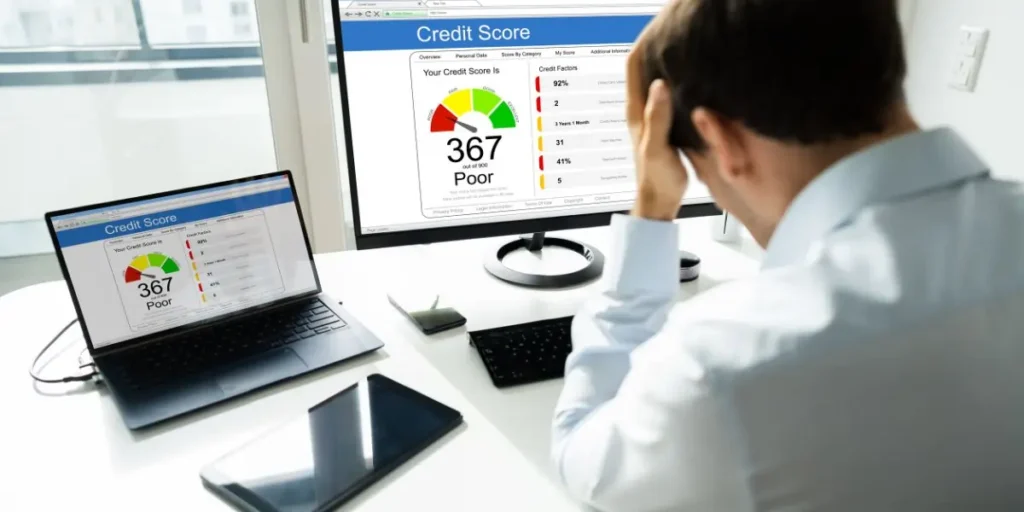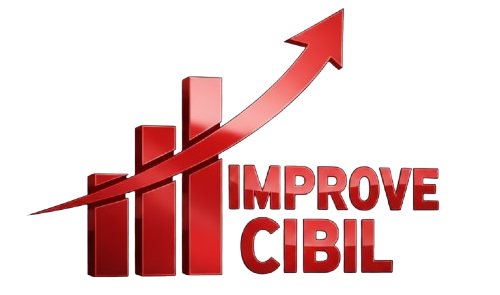
Tips to Improve Cibil Score
In today’s credit-driven world, your CIBIL score plays a key role in loan approvals, credit card limits, and financial credibility. At Improve Cibil, we understand how vital it is to maintain a healthy credit profile. In this article, we share proven tips to improve CIBIL score—no gimmicks, just smart strategies you can begin applying today.
What Is a CIBIL Score & Why It Matters
Before diving into tips, let’s understand what the CIBIL score is and why it holds so much weight in India.
CIBIL (Credit Information Bureau (India) Limited), now part of TransUnion, is one of the primary credit bureaus in India that maintains individuals’ credit histories. Wikipedia When you take a loan or credit card, your repayment behavior, outstanding balances, defaults, and credit utilization are recorded. Based on this data, CIBIL computes your credit score—generally between 300 and 900.
Lenders, banks, NBFCs, and fintech companies use your CIBIL score to decide whether to sanction a loan or credit line, and at what interest rate. A higher score signals lower risk; a very low score suggests default risk. Thus, improving your CIBIL score is not just a vanity metric—it’s deeply tied to your financial flexibility.
Key Factors That Influence Your CIBIL Score
To effectively improve your score, you need to know what levers affect it. The major factors include:
| Factor | Approximate Weight / Influence | Why It Matters |
|---|---|---|
| Payment history / Timely payments | Very high | Missed or delayed payments heavily damage your score |
| Credit utilization or credit exposure | High | Using too large a portion of available credit is negative |
| Length of credit history | Medium | Longer, well-managed accounts boost credibility |
| Credit mix (secured + unsecured loans) | Medium | A mix shows capability to manage different types of debt |
| New credit / hard inquiries | Moderate | Too many applications in short span raise red flags |
| Errors or inaccurate entries | Variable | Mistakes can falsely lower your score |
Multiple sources underline these points: for example, HDFC lists “pay bills on time,” “balance your credit utilization,” and “diversify your credit mix” among its top recommendations to increase your CIBIL score. HSBC similarly emphasizes reducing debt-to-credit ratio and avoiding excessive new credit applications. Other guides highlight checking your credit report for errors and maintaining low utilization as foundational steps.
With those levers in mind, here are the tips to improve CIBIL score systematically.
1. Pay All EMIs, Bills & Dues On Time, Without Fail
This is perhaps the most powerful tip to improve CIBIL score. Every time you miss or delay an EMI, loan repayment, or credit card due, your negative record gets reported to CIBIL and similar bureaus. Over time, even one or two late payments can drag your score significantly.
Set up auto-debit / ECS mandates for EMIs
Use reminders / calendar alerts for credit card dues
If you anticipate a shortfall, communicate with the lender early to seek restructuring
CIBIL and other credit bureaus put heavy emphasis on payment punctuality in their scoring models.
At Improve Cibil, we often tell clients: “Paying on time is non-negotiable.”
2. Maintain Low Credit Utilization / Exposure
Using too much of your available credit is seen as a red flag by lenders. A high credit utilization ratio suggests you’re overrelying on borrowed money. One widely recommended guideline is to keep your credit utilization below 30% of your available credit limits.
For example:
If your credit card limit is ₹100,000, aim to keep your outstanding balance below ₹30,000
Avoid maxing out multiple credit cards
Try to pay off large balances well before the statement date
By keeping utilization low, you show restraint and reduce perceived credit risk.
3. Clear or Reduce Outstanding Debts / Dues
If you have multiple outstanding loans or credit card balance, focus on reducing them. The lower your overall debt burden, the better your chances of increasing your CIBIL score.
Use surplus cash to pay off smaller or high-interest debts
If possible, consolidate debts to lower interest burden
Avoid taking new loans until your existing ones are in better shape
This step not only helps your credit metrics but also makes your monthly finances more manageable.
4. Maintain a Healthy Mix of Credit Types
Having exposure to both secured (e.g. home loan, auto loan) and unsecured (personal loan, credit card) debt demonstrates you can manage different financial obligations responsibly. Lenders view diversified credit mixes favorably.
However, this doesn’t mean taking new loans just for the mix’s sake—it should be done judiciously when needed.
At Improve Cibil, we recommend using this tip only if you already have stable repayment track records.
5. Limit New Credit Applications & Hard Inquiries
Each time you apply for a loan or credit card, lenders often generate a hard inquiry in your credit record. Excessive hard inquiries within a short span signal desperation or potential risk.
Avoid applying to many lenders in succession
Wait for a few months between applications
Check whether a lender does a “soft pull” (which doesn’t affect the score)
Too many new accounts or inquiries can drag down your score.
6. Keep Older Accounts Active & in Good Standing
The length of credit history matters. Older accounts with long tenure and good repayment history help your score. If you have a credit card you no longer use, don’t necessarily close it—maintain minimal usage and repay in full each cycle.
Some Reddit users also mention that actively using old credit cards (responsibly) helps maintain credit history length and positive record.
So unless a card has high fees, letting it remain open is often beneficial.
7. Check Your CIBIL Report Regularly & Correct Errors
A surprising number of people find mistakes or fraudulent entries in their credit report—wrong accounts, duplicates, or wrongly flagged defaults.
Request your latest credit report (TransUnion CIBIL) once a year
Check every entry: loans, card accounts, payment history
If you spot discrepancies, file a dispute with CIBIL
Follow up until the correction is reflected
Correcting errors is one of the easiest and fastest ways to improve your score.
At Improve Cibil, we guide our clients step-by-step through this process.
8. Use Credit Products Responsibly (Starter Loans / Small Loans)
If you currently have little or no credit history, securing a small starter loan, or a low-limit credit card, and paying it off diligently can help build positive lines in your profile.
Keep the amount manageable
Pay it off fully and on time
Don’t stretch beyond your means
This establishes payment rhythm and history, which helps signal reliability.
9. Avoid Being a Guarantor for Risky Borrowers
Sometimes well-meaning people cosign or guarantee loans for friends or family. If such borrowers default, it reflects negatively on your credit record and drags your score down.
Avoid guaranteeing unless you have full confidence in the borrower
Understand the potential liability
This tip is often cited in guides such as Standard Chartered’s list of ways to improve CIBIL.
10. Be Patient & Consistent — Credit Healing Takes Time
Improving your CIBIL score is not instantaneous. It often takes months or even a year of disciplined behavior for major shifts to show.
Track monthly progress
Stay consistent in behavior
Resist temptations to take shortcuts
You might see incremental changes, but large jumps usually take sustained effort.
Sample Timeline: How Your Efforts Could Reflect Over 6–12 Months
| Time Period | Focus | Expected Credit Impact |
|---|---|---|
| Months 1–3 | Pay overdue dues, set up auto-payments, audit credit report | Eliminate glaring negatives, stop further declines |
| Months 4–6 | Maintain low utilization, avoid new credit applications | Gradual upward movement in score |
| Months 7–12 | Diversify credit mix, build positive repayment history | Noticeable improvement in creditworthiness |
| Beyond Year 1 | Sustained good behavior | Reach a strong score 750+ |
Why “Improve Cibil” Is Your Ally in This Journey
At Improve Cibil, our mission is to help individuals understand and improve their CIBIL score through personalized guidance. We provide:
One-on-one assessments of your credit report
Tailored action plans (based on your debt profile)
Dispute support for erroneous entries
Progress tracking and periodic reviews
We don’t just give generic tips—we work with you to implement them. So when you follow our tips to improve CIBIL score, you also have a support system behind you.
FAQ (Frequently Asked Questions)
How long does it take to improve a low CIBIL score?
There’s no fixed duration. Depending on the severity of negatives and your improvement actions, you might start seeing positive change within 3–6 months, and more significant improvements within 9–12 months. Extreme damage may take longer.
Will checking my own CIBIL report reduce my score?
No. Personal checks (soft inquiries) do not affect your score. Only hard inquiries made by lenders during loan or card applications can cause minor drops.
Can closing a credit card help improve my score?
Not necessarily. Closing a card may reduce your total available credit and increase utilization ratio, which can hurt your score. It’s often better to keep a card alive with occasional usage and full repayment.
If I have defaulted in past, can I still improve?
Yes. Even if you have past defaults, consistent positive behavior (timely payments, reducing balances, correcting errors) can gradually rebuild your credit. However, it takes discipline and time.
Does having multiple loans hurt my CIBIL score?
Having multiple loans is not inherently bad—if you manage them well. The risk arises if payments are missed or exposure becomes too high. A better strategy is controlled, manageable debt with good repayment.
Can I improve my CIBIL score fast using apps or “instant score boosters”?
Be cautious. Many “instant” boosters are scams or gimmicks. Sustainable improvement comes through good financial habits. Advanced tools (like credit counseling services) can help but real change demands discipline.
